Kevin Stirling, who has been Aberdeen FC’s historian for more than two decades, has published a new book on the Dons which looks at Sir Alex Ferguson’s trophy-laden spell in charge at Pittodrie.
Aberdeen’s Golden Era author Stirling, who is the historical editor of the club’s programme, talked about his new book, which is due out later this month, and what made Ferguson’s spell in charge so special.
Stirling, who went to his first Dons game in 1966, believes the future for the club is looking bright under current boss Jimmy Thelin.
Why do you think Sir Alex and the Dons were the perfect fit?
Timing was important.
That Aberdeen team had come so close to winning things before he came and Ferguson’s acrimonious departure from St Mirren had given him a real desire to succeed personally.
He also came to a club which was ready for him to take the bull by the horns as it were and go forward and plunder.
Billy McNeill left a very good side for Ferguson which is overlooked at times.
We had established internationals, very good players and an outstanding group of youngsters coming through.
That, allied with Ferguson’s situation, made it a perfect storm.
What made him so special for the club?
Ferguson’s time as a player has been well documented.
He was a prolific scorer with Dunfermline and St Johnstone and earned his big money transfer to Rangers which he wanted.
But the way his Ibrox career panned out shaped him.
His personal situation which famously led to him being asked by a Rangers director what church he and his wife were married in, and how it was used to define his time there, affected him deeply.
He has discussed that incident openly and it led to a deep resentment on his part. It’s why he turned Rangers down twice when they wanted him to become their manager.
A strong affinity for Celtic led to McNeill leaving the Dons to become manager prior to Ferguson replacing him at Pittodrie.
But Ferguson’s Ibrox experience fuelled him and gave him the desire to succeed.
He had a bitterness towards Rangers and a drive to succeed. We all know his fiery temper made him a difficult character but would have had the same impact without it? I doubt it.
What effect did Ferguson and the team have on the city during those halcyon days?
You have to remember the city was thriving economically as well.
The oil and gas boom changed the whole dynamic of the city and the football team added to that by improving week on week with a great manager.
It was an exceptional period as prior to Ferguson all we’d had to celebrate was the 1970 Scottish Cup and League Cup in 1967.
You are talking about two major trophies from 1955 to 1978 and then 10 trophies being won in the space of eight years.
I remember when my wife, who is from Glasgow, arrived in Aberdeen and she said all she could see was red and white everywhere she went. It was as if it was Christmas in July.
The atmosphere about the city and the football team during that time was special.
How much did the League Cup final defeats shape his desire for success?
It was unique to suffer two League Cup final defeats in one year in 1979, the first to Rangers in March and the second to Dundee United in December.
He wanted nothing more than to get one over on Rangers in the first final and the circumstances of the defeat really breathed fire into what was a growing rivalry.
Doug Rougvie was sent off following a clash with Derek Johnstone, with both Rougvie and Ferguson insisting Johnstone was guilty of simulation, before Rangers scored a last-minute winner.
Rougvie was furious and had to be held back in the changing room.
The second final against United, which went to a replay, was another sore one. Ferguson didn’t change his line-up for the second game and by his own admission that was a mistake.
But it was the feeling afterwards which galvanised the team. He told the players ‘we never want to go through that again’ and to be fair to him they didn’t.
He won every final after that.
You touch on the 900 goals the Dons scored during Ferguson’s reign, do you have a favourite?
The obvious one is John Hewitt against Real Madrid in the Cup Winners’ Cup final in Gothenburg in 1983 as I was right behind it but I’ll go for another one by Hewitt a year earlier in a Scottish Cup tie at Pittodrie against Celtic.
We had beaten Motherwell in the opening round and drew Celtic, who were managed by McNeill, at home.
They were our big rival at that time as we had taken the league off them in 1980 before they did the same to us in 1981 after we had built up a substantial lead.
To knock them out the cup thanks to an overhead kick was special but the goal stands out because of what came after in terms of Europe.
It was as significant as it was brilliant because it laid down a marker for the club.
Who was the most underrated player of the Fergie era?
Dougie Bell is a stick-on for that accolade.
Given Bell didn’t start many league games, whether it was a trust issue or a work-rate concern, I don’t know.
But he signed as an unknown for nothing and turned out to be an absolute maestro for European games.
He was viewed by fans as a secret weapon but only because he didn’t play in many league games but Ferguson had the utmost faith in him for European ties.
He was the perfect player for Europe. Two-footed, so skilful, did the unpredictable and was a potent weapon in tight European ties.
When you are coming against the German sides, who would send a delegation to spy on you, and then this guy turned up making mazy runs destroying defences, they wondered who he was as he hadn’t featured in the league games they’d watched.
Domestically he was an impact player. In Europe he was an absolute genius.
The European Cup Winners’ Cup campaign in 1982-83 was the club’s greatest moment but do you have a favourite domestic game from that era?
The one which sticks out for me is when we beat Rangers 5-1 in January 1985.
It was the most humbling experience I’ve seen Rangers suffer in the many games I’ve seen.
That day we were outstanding and it’s no exaggeration to say it could have been 10.
I met Sandy Jardine many years ago and he told me they tried everything to change the results at Pittodrie.
They came up the day before games and stayed in the hotel. They tried coming up on the day of the game and going for a walk along the beach but it always ended in defeat.
Jardine said he had never seen so many players vomit before a game here because of how daunting those games at Pittodrie were.
What could Aberdeen have done differently after Fergie left to build on that era?
We could have appointed a manager who knew Scottish football.
At that time foreign managers in British football were a rarity. In Scotland a manager tended to be Scottish or had experience of playing in Scotland.
Ferguson advised Sandy Jardine should replace him but Hearts moved quickly to sign him onto a longer contract with Alex MacDonald.
Hindsight is great but Aberdeen went for the wrong option. Ian Porterfield was not a bad manager, he was just he wrong man at the time.
The board wanted Archie Knox but he wanted to go with Ferguson. Had I been on the Aberdeen board I would have asked Ferguson for two or three candidates and advice on the direction we should go.
But who would have been the right one? Following Ferguson was an impossible task. Just ask Davie Moyes who went to Manchester United to replace him.
Ferguson’s era will never be matched at Pittodrie, but can you see the Dons ending the duopoly in Scottish football?
It’s difficult. If you think Ferguson signed Peter Weir in 1981, the final piece in the jigsaw as it were, for a record between two Scottish clubs at the time, it shows how level the playing field was.
But the introduction of the Bosman ruling and Sky has changed the game drastically in the decades since Ferguson left.
When Aberdeen won the Cup Winners’ Cup the campaign was 11 games. These days it would barely get a Scottish team out of group stage in Europe.
When you factor in the Champions League money which Celtic in particular have banked over the years it has only made the gulf bigger.
We’ve had a lot of false dawns in the post-Ferguson era, but do you see cause for optimism for the club under Jimmy Thelin?
I’d like to think in 12 months’ time we’ll be taken a lot more seriously than we are now.
You can see there is a style of play now in place from the manager and the players are buying into it.
Look at Graeme Shinnie, he’s a different player this year. He’s hitting one-touch passes and playing one-twos. When did we see that before? Never.
I haven’t seen such a togetherness in the squad as I do just now. There was a siege mentality in the Ferguson era but Jimmy Thelin is a quiet assassin.
Whether it is to do with the hierarchy at Pittodrie or not I don’t know, but everyone is buying into whatever he is doing.
I’ve been watching games since 1966 but the atmosphere just now and the match experience is brilliant and long may it continue.
There has to be a realism here of what he is up against but if we can go to places like Celtic and compete it is a real sign of progress.
Looking longer term can he bring silverware to the club? Yes, why not?
Why have you decided to focus solely on this era for your new book?
I thought it was a good opportunity to document the greatest period the club has ever enjoyed.
There have been other works of course covering the era but I wanted to document everything from statistics and facts to quotations of the Ferguson era from 1978 to 1986.
There is a lot of anecdotal evidence as well of course but it’s a factual and accurate look of his time in charge at Pittodrie.
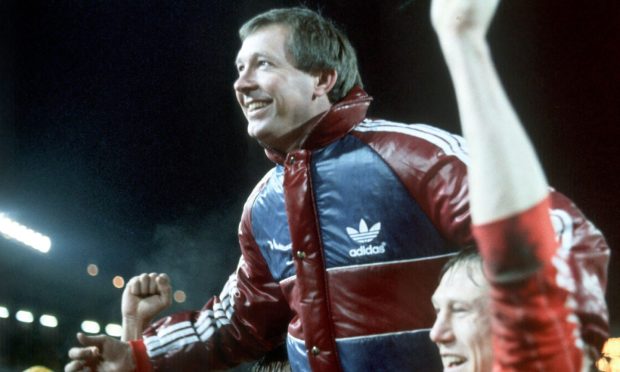
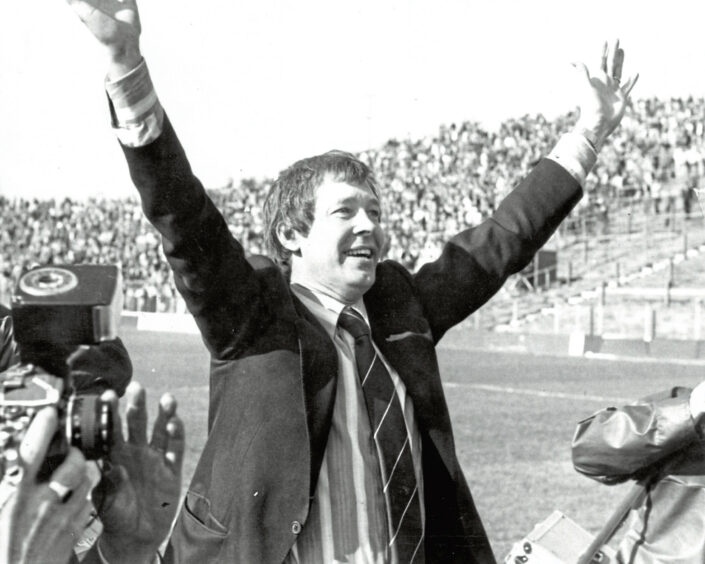
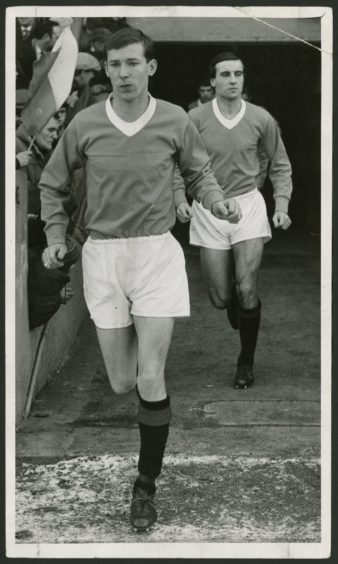
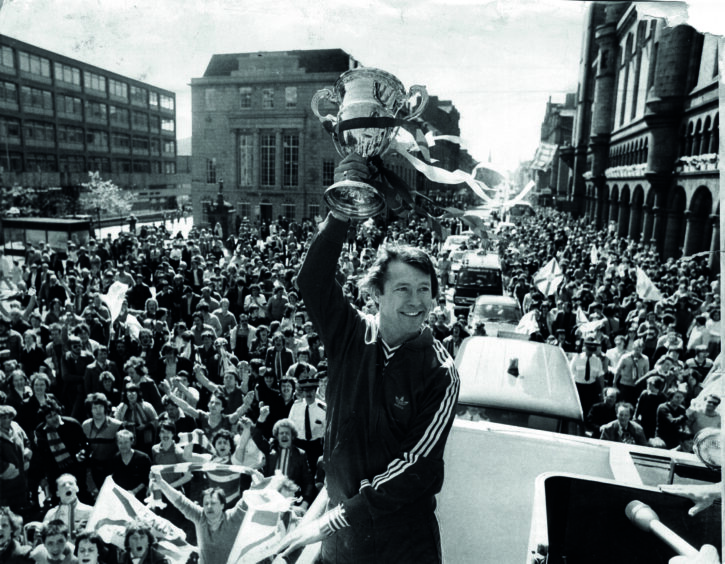
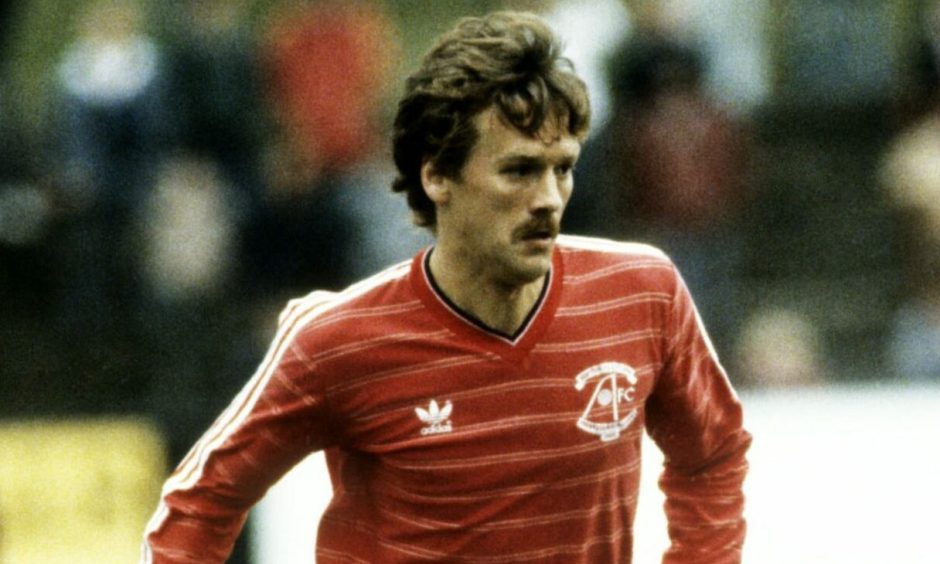
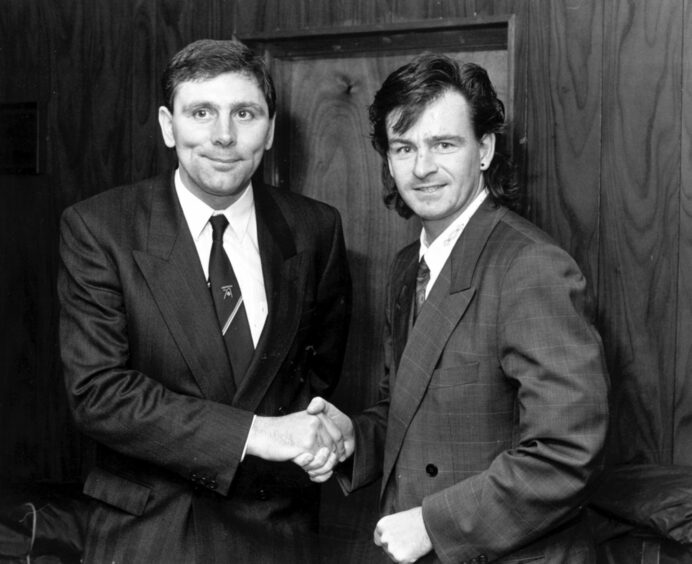
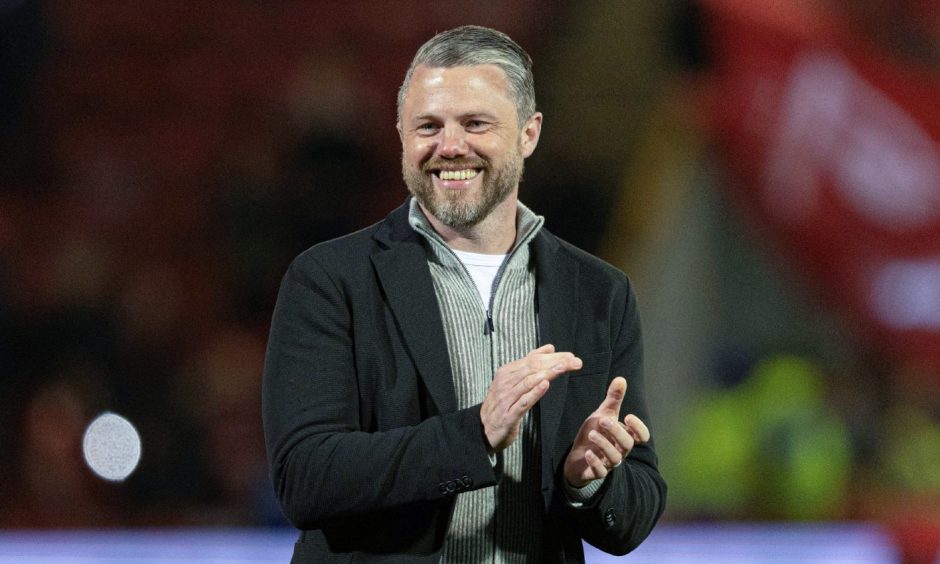
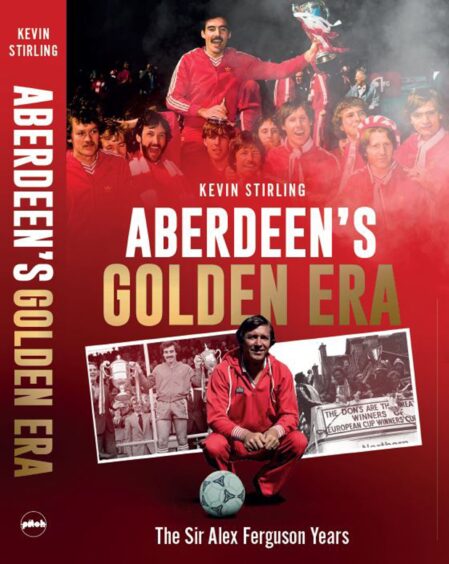

Conversation